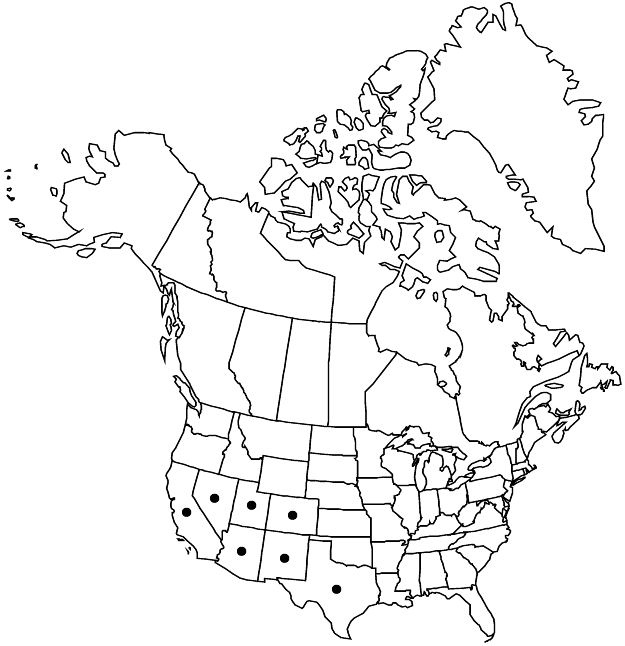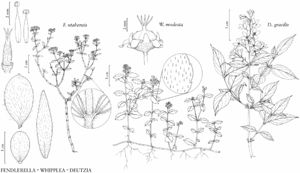Difference between revisions of "Fendlerella utahensis"
Bull. Torrey Bot. Club 25: 626. 1898.
FNA>Volume Importer |
FNA>Volume Importer |
Revision as of 18:19, 24 September 2019
Stems to 10 dm. Twigs reddish to orangish, strigose. Leaves: petiole 0.1–0.3 mm, pilose in axils; blade 5–20(–25) × 1–5(–6.5) mm, base cuneate to rounded, apex obtuse to acute, abaxial surface glabrate or strigose to tomentose, adaxial glabrate or strigose. Inflorescences congested to open, bracteate; peduncle 2–10 mm, strigose. Pedicels 0.8–3(–4.5) mm, strigose. Flowers: hypanthium 0.5–2 × 0.9–1.2 mm; sepals 0.8–2.2 × 0.2–0.6 mm; petals 2–4 × 0.8–1.2 mm, margins erose; filaments 1.2–3 × 0.2–0.4 mm, those opposite sepals longer than those opposite petals; anthers 0.2–0.5 mm. Capsules 4–6.1 × 1.5–1.9 mm. Seeds 2–3 mm.
Phenology: Flowering Apr–Jun (Aug–Sep).
Habitat: Cracks and crevices, usually in limestone, sometimes sandstone, outcrops, sandy soils of mixed desert scrub, pine communities.
Elevation: 1200–2800 m.
Distribution

Ariz., Calif., Colo., Nev., N.Mex., Tex., Utah, Mexico (Chihuahua, Nuevo León).
Discussion
Some plants in the southern range of Fendlerella utahensis (southern Arizona, southern New Mexico, trans-Pecos Texas, and northern Mexico) have leaves that average narrower, longer, and more acute than leaves on plants to the north. These have been recognized as var. cymosa. Intergradation is common; the variety is not recognized here.
Selected References
None.
